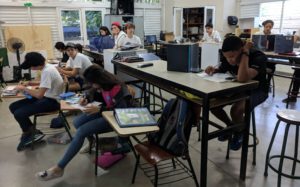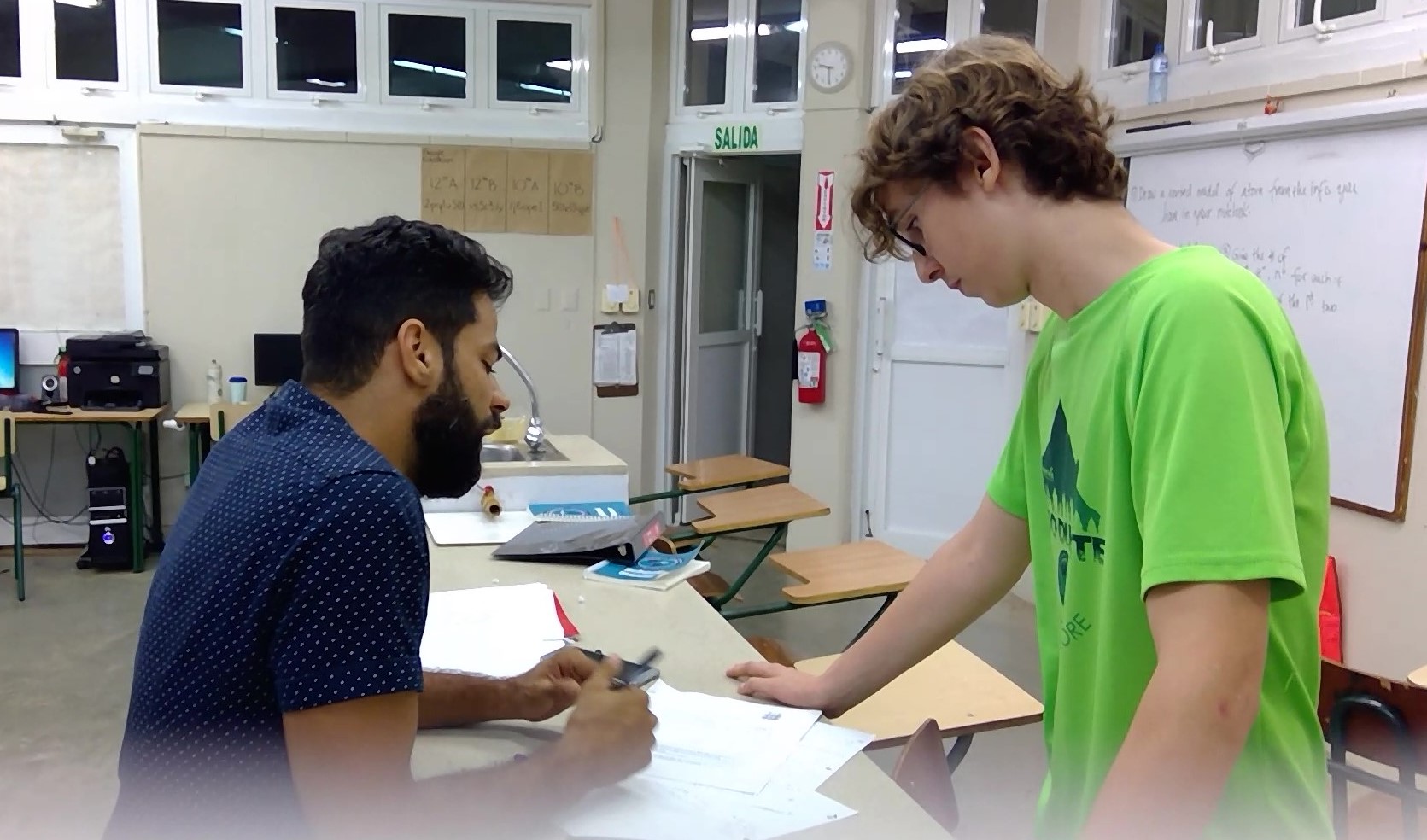The Impact of Self-Assessment on Student Learning
Last year, two of our math teachers began experimenting student self-assessment and SWYCADS, a style of assessment that allows students to show teachers the depth of their understanding, to assess themselves, to explain why they believe they’ve shown understanding, and to give themselves a grade. They had wonderful results: students quickly lost their fear of quizzes, many of them developed a growth mindset, and their learning improved immensely. Inspired by these positive results, our math and science teams both jumped on board with this new and improved way of assessing our students.
 Recently, I walked into an 11th grade Physics class as students were working on a SWYCAD and filling out their self-assessments. After they handed in their work, some of them went to work on theirair cannon projects, while others met with friends to discuss the answers they got on their SWYCADs. I listened in on a few conversations and noticed that they weren’t just checking on the answers — their discussions went deeper, with students explaining their thinking to each other and helping each other understand the problems. I asked them about this and they mentioned that the next day they would meet with their teacher, Dennis, for a conference, and their goal was to be able to explain their mistakes and show that they now understood, in order to show mastery of the learning target
Recently, I walked into an 11th grade Physics class as students were working on a SWYCAD and filling out their self-assessments. After they handed in their work, some of them went to work on theirair cannon projects, while others met with friends to discuss the answers they got on their SWYCADs. I listened in on a few conversations and noticed that they weren’t just checking on the answers — their discussions went deeper, with students explaining their thinking to each other and helping each other understand the problems. I asked them about this and they mentioned that the next day they would meet with their teacher, Dennis, for a conference, and their goal was to be able to explain their mistakes and show that they now understood, in order to show mastery of the learning target
I interviewed several students about the SWYCAD. This is what they had to say.
What is a SWYCAD?
- “It’s a self-assessment. We think about our learning and grade ourselves on a rubric that shows how much we understood.”
- “It gives us choices. We can choose which problems we want to answer. For instance, in this one, there were 7 problems and we could choose 5 to answer.” I asked Dennis about this, and he said all the questions dealt with the same learning target, but giving the students choice lowers their stress in answering the questions.
- “It’s actually just a quiz. We all know it’s the same thing, but the change in the name takes off the pressure. Psychologically, it’s different.”
- “We grade ourselves and notice our mistakes. Then we try to improve.”
- “SWYCADs are shorter than quizzes and we get them more often so it keeps us on top of our studying.”
Do you think SWYCADs work? Why or why not?
- “I think they work because when you notice your own mistakes, you pay attention and accept them. When the teacher grades your work, you look at the grade but don’t pay attention to your mistakes. You just dismiss them.”
- “I like the conference with the teacher. It helps me understand what I did wrong. If I don’t understand the first explanation, the teacher finds another way to explain it to me.”
- “Instead of focusing on the grade we focus on the learning.”
- “They’re helping me improve. I’ve never really understood science, but for the first time I feel like I’m really learning.”
- “It’s funny. The grade is still important to me, but now I see the relationship between my learning and my grade. I used to think that if I worked hard, I should get a good grade. Now I realize that it’s about learning, not just hard work.”
- “I like having a choice in how I show my learning. All of the problems are hard, but somehow having a choice makes me feel less anxious.”
- “I really see where I am in my understanding and what I need to work on. For the first time, I know how to improve.”
- “It’s great because making mistakes doesn’t mean I get a bad grade. I can learn from my mistakes, show what I learned, and my grade improves.”
The responses from all of the students were overwhelmingly positive, and in just 6 weeks of school, we’re seeing a general change in attitude to science and math classes. Students are gaining confidence and like these classes better. They’re more engaged their work and the focus is on learning. Students are gaining a growth mindset; they realize that mistakes are a natural part of learning that can help them grow and improve.
Later, as I walked down the hallway, a couple of 11th grade students stopped to ask me why I had been asking questions about the SWYCADs. I told them I was interested in getting feedback from the students about this new form of assessment.
One of them, who is not generally very enthusiastic about school, said, “You’re not going to take them away, are you?” When I assured her that I wasn’t, she sighed with relief, hugged me, and said, “Good! I love SWYCADs! Okay… maybe I don’t love them, maybe I just like them, but I’m not afraid of science tests anymore and I’m doing good in science for the first time in my life, so I really don’t want you to take them away!”
I don’t need any more proof than that.
If you’re experimenting with self-assessment, I’d love to hear about your experiences and if you’re noticing any changes in your students’ attitudes to learning.


Leave a comment